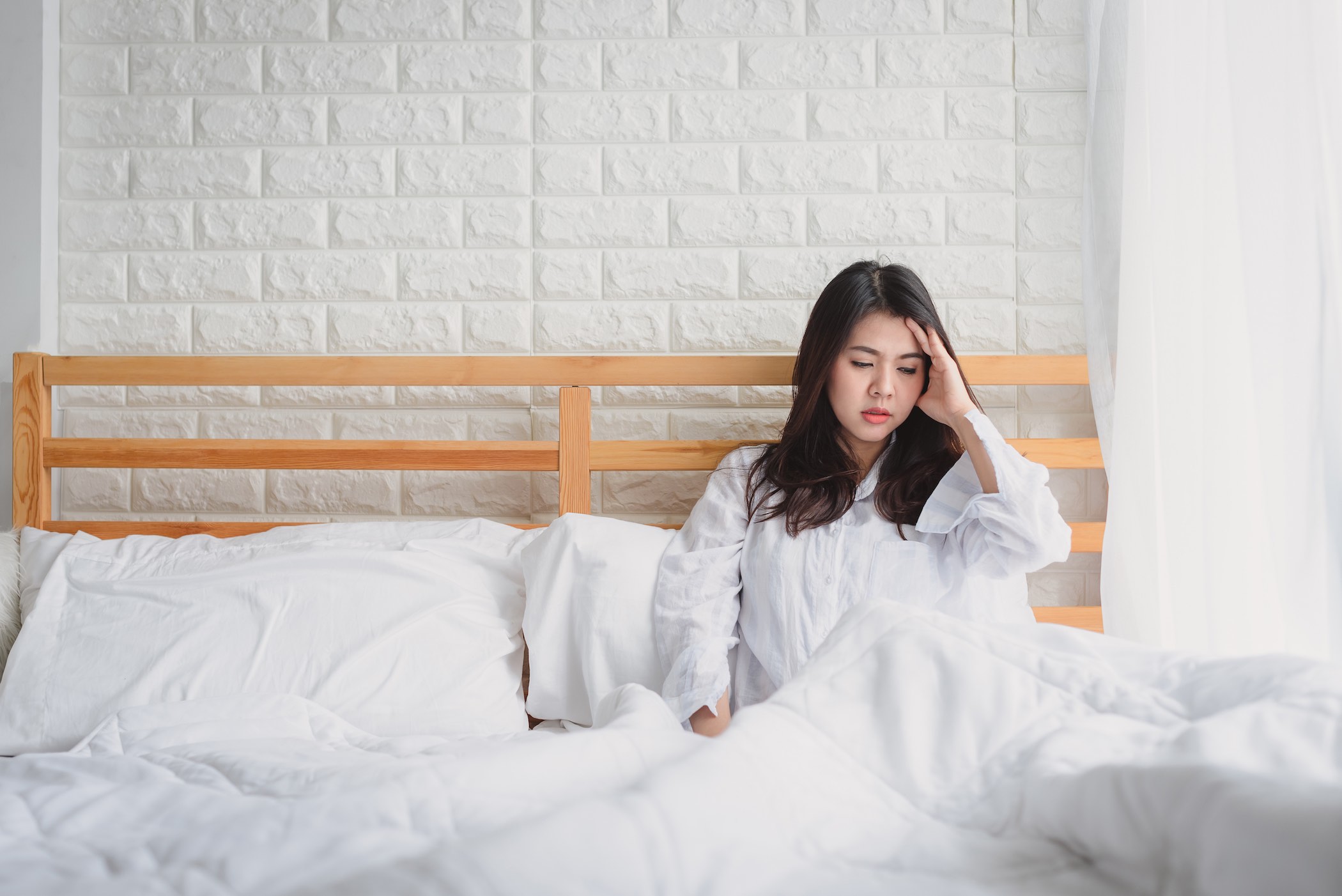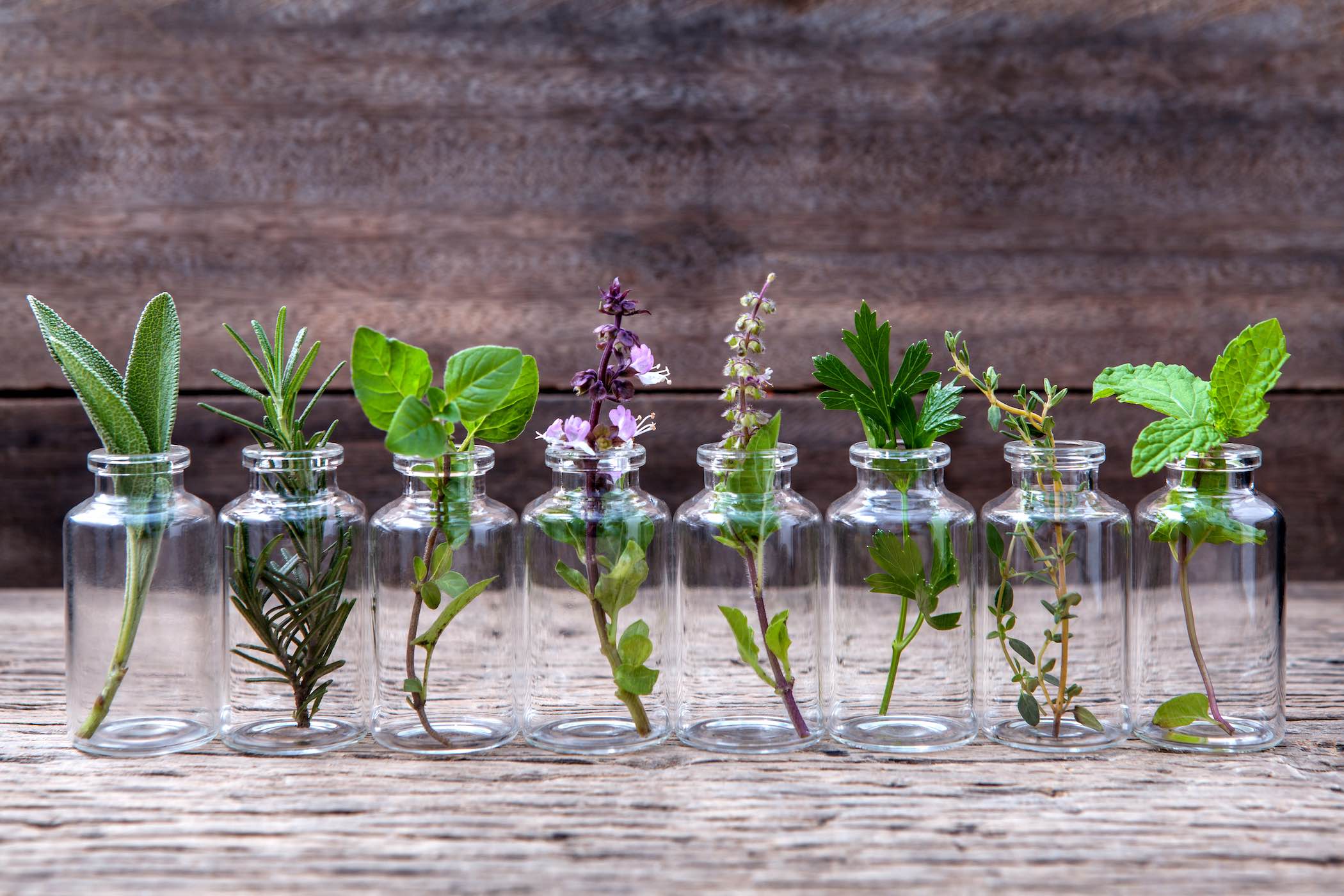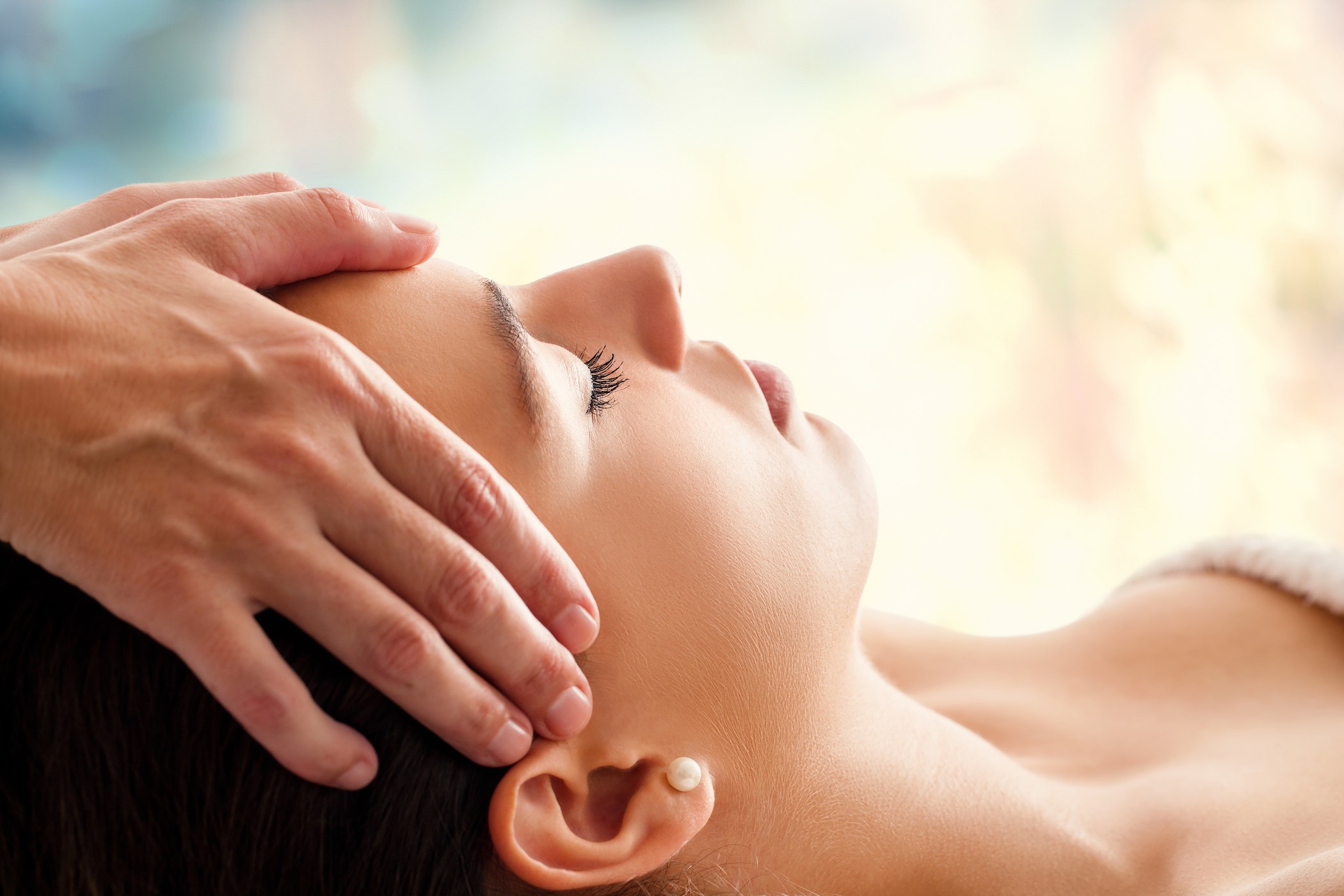Sleep Awareness Week: 4 ways lack of sleep impacts your skin health

In aid of Sleep Awareness Week (March 14–20), we reveal how you can help clients overhaul their bedtime routine for optimal skin health, covering the impact a bad night's sleep can have, the best snooze habits customers shoul instil and more.
What effect does a lack of sleep have on the skin?
1. “Dark circles around the eyes are the most common tell-tale sign of a poor night’s sleep,” says Dr Natalie Blakely, aesthetic doctor and owner of Light Touch Clinic in Weybridge, Surrey. These are caused by an increase in cortisol, often referred to as the stress hormone, which the body produces lots of when it’s tired.
2. Cortisol causes blood vessels to swell to accommodate an increased volume of blood. This happens to the blood vessels under the eyes too. “Cortisol activates our ‘flight or fight’ response to make the body more alert when sleep deprived,” explains Blakely. “It can also elevate oil production, leading to breakouts.”
“Sleep induces the production of collagen, so over time a lack of sleep often leads to dark circles, fine lines and pallid complexions,” says Dr Michael Breus, a clinical psychologist known as “The Sleep Doctor”. “Plus, growth hormone peaks during deep sleep, and this plays a central role in initiating cellular repair.”
3. The immune system takes a big hit when the body is deprived of regenerating sleep, and Breus says this is a common cause of rashes and other skin-related problems.
4. Skin puffiness. "When we sleep our skin repairs and renews itself. However, without enough sleep the repair process is slowed and toxins and fluids are not drained correctly, meaning puffiness (especially around the eyes) and the GAG synthesis (production of collagen, elastin, hyaluronic acid etc) do not work to their full capacity," says Kirsti Shuba, co-founder of Katherine Daniels.

How important are good sleep habits in achieving healthy skin?
Regular sleep is essential for good health and clear skin. "These hours are the most effective time for your liver to cleanse the blood. It is also time when your cortisol level decreases and the skin receives a much-needed boost of oxygen. Cellular regeneration also peaks during this time, which is why you wake-up with a glowing complexion when you sleep well," says Beata Aleksandrowicz, co-founder of the Pure Massage Spa Training Method.
"Sleep deprivation can often lead to a reduction in collagen production and, as a result, very poor skin elasticity. It is really important that you make your clients aware of how crucial it is to get a good night’s sleep – aiming for around eight hours per night. During your consultation, ask them about their sleeping patterns. Suggest they avoid spicy food in the evening and also excessive activity."
Aleksandrowicz also suggests getting them to slow down in the evening, for example, going for "a gentle walk and then a bath with some lavender essential oil," she says. "You can also suggest that once they are in bed, they can take few simple and mindful breaths while holding their face in their hands. The room should be fresh and windows curtained to keep out the light.
"I also recommend to clients to avoid blue light from digital devices for at least an hour before bed and not to take devices into the bedroom. We need darkness to produce enough melatonin to help promote a deep sleep."
What are the best ingredients for counteracting signs of poor sleep on the face?
“Hyaluronic acid is your superstar ingredient,” says Blakely. “Lack of sleep can make the skin look tired and washed out, so you need something to give the skin a boost. Capable of holding up to 1,000 times its weight in water, hyaluronic acid deeply hydrates to plump and brighten tired skin.” Recommend clients try a hyaluronic-boosting serum or course of infusion facials to restore plumpness.
Tracey Woodward, beauty expert and director of innovation and sustainability at Sheridan&Co, advises turning to the power of essential oils. “Clients are looking for ways to sleep better and find calm and balance, and actually as soon as you take a product off the shelf to change how you feel you own the next step. With aromatherapy, what you smell is what you need.
"If you were looking at individual oils to sleep, you would be looking at the vetiver, the chamomile and lavender."

What tips can I give clients' to improve their sleep?
“It’s really important that we educate clients during any skin treatment consultation and explain how poor sleeping patterns can affect the skin. If you can really get them to understand the value of sleep, they will be motivated to make lifestyle adjustments,” advises Blakely. “Explain that while the odd late night isn’t going to cause too much damage, inconsistent sleeping patterns over time will have an impact on skin.”
She tells clients that one of the simplest ways to improve their sleep is to switch off all digital devices before bed, as many people don’t consider just how disruptive notification noises and blue light from devices are to rest. “Tell clients to really give some thought to establishing a regular bed time that allows enough sleep before their morning alarm,” she adds.
Breus devised a method for his patients to use during that last hour before bed to prepare for sleep as much as possible: “20 minutes of those small things that just need to get done before bed, followed by 20 minutes of bedtime hygiene (personal practices or habits that are necessary for a good night’s sleep), and finally, 20 minutes of meditation, relaxation or massage.”
How do I create a sleep treatment menu?
As well as retailing products specifically designed to support clients’ skin while they sleep, you need to offer the right treatments in the perfect environment to help customers on their way to healthier rest. A few adjustments should be made to treatment rooms before carrying out sleep treatments. “The optimal room temperature for a good night’s sleep is 16ºC so we aim to keep it around this temperature,” says Andrea Polly, senior therapist at Slieve Donard Resort and Spa in County Down, winner of PB’s Northern Ireland Spa of the Year 2018. “We also give clients a choice of lighting colours and music to aid with relaxation and adjust the bed to suit their comfort.”
Sleep treatments are approached in a slightly different way at PB-Award-winning The Spa Hotel at Ribby Hall Village, Lancashire, where Neom’s Sleep Treatment is on the menu. “The therapist shows the client how to prepare for a great night’s sleep with progressive relaxation techniques like mindfulness meditation,” says spa duty supervisor Emma Nutter. Variations on meditation, such as breathing and visualisation techniques, can also be incredibly effective in helping clients relax.
“In our Sleep Ritual, we use a technique called polarity balance to ground the therapist and client before the treatment, allowing physical and emotional stress to leave the body,” says Polly. When choosing products and scents, aromatherapy lends itself perfectly to sleep treatments. Get clients to choose from a selection of calming and soothing aromatherapy oils, letting the body guide them to what it needs – “usually oils that contain frankincense, myrrh, lavender, sandalwood or rose geranium”, advises Polly.
She uses long, stroking movements “such as linears and effleurage” during sleep treatments, and recommends hot stones to help the muscles relax quicker and swiftly bring about a feeling of serenity in the body. Post-treatment, give clients practical advice about how their experience can have a lasting effect. “We advise clients to incorporate the following into their bedtime routines,” says Nutter. “Remove electrical items from your bedroom including clocks and televisions and avoid high-intensity exercise two hours prior to bedtime.”



